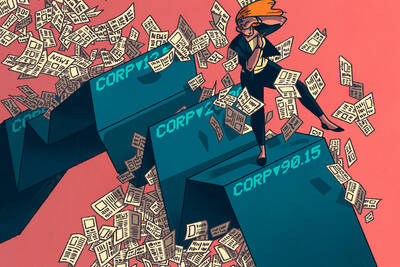Leadership Finance & Accounting Organizations Feb 2, 2012
How Public Outrage Affects CEO Pay
Compensation changes but does not always decline
The public has been concerned about income inequality for at least twenty years, says Camelia M. Kuhnen, an associate professor of finance at Kellogg School of Management. Long before there was an Occupy Wall Street, articles in the press were denouncing excessive compensation. What, if anything, she wondered, was the effect of all this negative press on how firms paid chief executives?
As it turns out, the public and the media have more influence on how CEOs are paid than most of us probably realized. This does not mean, however, that the resulting changes in how executives were paid are necessarily a good thing.
In order to uncover whether there was a link between the sentiment expressed in the news about executive pay and how that pay was subsequently doled out, Kuhnen and her collaborator, Alexandra Niessen, an assistant professor at the University of Mannheim, wrote software to crunch through a database of 26,000 articles spanning the years 1990 to 2010. By identifying key words that indicated negative coverage in the context of stock options—“backdating” was one of them, given the options backdating scandal that broke during that period—they were able to determine the overall tone of coverage in each of the years they examined.
A Focus on the Wealth Gap
Because as much as the focus of public ire during this period was on stock options, Kuhnen believes that it was probably more about the gulf between rich and poor in general. “I think the public did care about the level of CEO pay,” Kuhnen says. “You see this in surveys done in that time period. The public has cared a lot about income inequality for the past couple of decades.”
Kuhnen and Niessen found that compensation taken away in the form of options was replaced with salary, bonuses, and shares of restricted stock, leaving CEOs with the same nominal income as before.
Companies that were attacked over options, according to the media data gathered, responded to the pressure by changing their compensation practices, often lowering the amount of the options grants given to CEOs. This effect was more pronounced for chief executives who were younger or at firms with more independent boards. In other words, companies whose leaders were more concerned about their reputation, or who had more power to act to protect that reputation, were more responsive.
Yet in the wake of all this negative press, overall CEO compensation did not decline. Kuhnen and Niessen found that compensation taken away in the form of options was replaced with salary, bonuses, and shares of restricted stock, leaving CEOs with the same nominal income as before. This shift away from options had the effect of reducing the sensitivity of CEO pay to the stock performance of the firm. This is one of the reasons that Kuhnen is not sure that, at least in this case, the responsiveness of CEO compensation to public pressure was a good thing.
“When you shift away from options pay into, for example, salary, you diminish the strength of the connection between how a CEO is paid and how the company is doing,” Kuhnen says. In other words, loosening the coupling between pay and performance means CEOs have less incentive to work hard.
Shifting Away from Options
At the time that options were in the news in the 1990s and early 2000s, the stock market was going through periodic surges that inflated the value of these options, making them more visible. But given that the origin of much of the public’s outrage was income inequality, it seems that options may have become a proxy for this inequality. “This is just one potential explanation,” Kuhnen says, “but people were hearing in the media about managers receiving very large option grants, and it’s possible in people’s minds they equated the pay of the CEO with the size of the option grant.”
It is not just that reducing options compensation could have influenced the subsequent decision-making of CEOs in a way that was less than helpful; it seems that it also did not accomplish the original goal of the public, which was by most accounts the reduction of the wage gap.
While options were the focus of the most scrutiny and subsequent changes, they were not the only kind of CEO pay transformed during the period studied. In 2008 options gave way to bonuses as the most excoriated type of compensation. From 2008 to 2009 the type of compensation that dropped the most was bonuses. “So depending on what the public is focused on, we see firms react by diminishing that type of pay,” Kuhnen says.
With a grinding financial crisis threatening to turn into a global recession, as well as all the attention on the Occupy movement, we are living through a time when people are more focused on income inequality than ever. Kuhnen says that if the protestors of Occupy Wall Street were to focus on executive pay rather than income inequality in general, she thinks that firms would react.
Whether or not that would be a good thing, however, depends on your perspective. In a normal economy, no one knows how to shape compensation in a firm better than the people who work for it, and as Kuhnen’s research reveals, public pressure has in the past had the paradoxical effect of making CEOs somewhat less accountable, at least in terms of their compensation.
“It’s a complicated issue,” Kuhnen says. “It’s not as simple as, ‘The public is a wonderful governing mechanism and will help all firms do better.’ ”
Related reading on Kellogg Insight
Hiring and Firing at the Top: Industry conditions matter when looking to hire or fire a CEO
Today’s Rising One-percenters: The growing gap between the very rich and everyone
Corner Office Compensation: Post-employment benefits explain CEO compensation
Kuhnen, Camelia M. and Alexandra Niessen. 2012. “Public Opinion and Executive Compensation.” Management Science, 58(7): 1249-1272.


